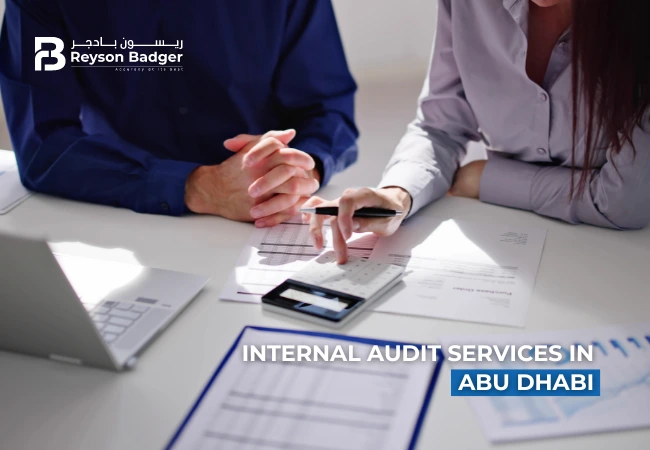
Internal audit now plays a very significant role in achieving operational excellence and managing risks under the umbrella of a dynamic and constantly changing business environment. It is indeed the structural and key component of an organization's governance framework. It provides independent, objective assurance that the internal controls, risk management processes, and governance practices are appropriately effective.
Internal auditing in Abu Dhabi becomes highly important while referring to the emirate's booming economy, which is artificially boosted by strategic investments in finance, healthcare, and energy sectors. Such a complex system of regulations has built up; therefore, the significance of internal audits cannot be undervalued concerning comparison in Abu Dhabi. The UAE framework of regulations requires adherence to high standards of transparency, accountability, and governance through compliance with federal laws and local regulations.

Internal auditing provides numerous benefits to organizations, contributing to their long-term success and sustainability. Some of the key advantages include:
1. Enhanced Risk Management
2. Improved Compliance and Governance
3. Increased Operational Efficiency
4. Better Decision-Making
The process of internal audit in Abu Dhabi is conducted systematically, focusing on operational and risk management activities as well as compliance with the related regulatory processes. In essence, some stages are emphasized during the process. They include:
Planning and Risk Assessment
Audit Scope and Objectives
Fieldwork and Testing
Analysis of Collected Data
Reporting and Follow-Up
Internal audit, which is frequently performed in Abu Dhabi, considers a range of important focus areas organizations should watch out for.
Internal audits seek to ensure the validity, completeness, and representational accuracy of financial statements as aligned with accounting standards. This is achieved through the review of financial records, transactions, and statements of an organization to determine associated risks and improvement opportunities.
Audits examine operations in the context of processes and controls to pinpoint inefficiencies, potential risks, and areas for improvement. That, in turn, will support streamlining operations, enhance the optimal usage of resources, and improve performance overall.
Audits of IT systems, and data security controls ensure the confidentiality, integrity, and availability of information. The protection results from cyber threats and breaches of data.
Internal auditing is the facilitation of compliance with the UAE laws, regulations, as well as other industry standard requirements. These include the rules of the Central Bank of the UAE, Securities and Commodities Authority, Abu Dhabi Accountability Authority, etc.
Independence and Objectivity
Risk-Based Auditing
Continuous Monitoring and Reporting
Collaboration with External Auditors
Internal audits of Abu Dhabi have many regulatory and standard-based requirements for them to comply with. Notably, this includes UAE Federal Law No. 2 of 2015, Commercial Companies Law which outlines a governance and compliance framework that businesses operating in the UAE have to adhere to. Central bank regulations also have to be complied with by internal auditors if the organization is for example in the financial sector. International Standards for the Professional Practice of Internal Auditing provides an all-inclusive framework at the global level; hence ensuring that all the audit practices are aligned toward the effective delivery and internationally recognized best practices.
Common Challenges
Emerging Trends
Opportunities for Growth
Internal audit plays a very key role in assessing and improving the risk management, compliance, and efficiency of an organization in operations. Practices that must define internal audit success include independence, risk-based audit, continuous monitoring, and adherence to standard regulatory practices. Internal audit, I would say, has the key to operational excellence: it points out areas for improvement as well as conformance to rules and regulations central to an organization's integrity as well as enhances decision-making processes.
Reyson Badger is known for its holistic internal audit services which enable organizations to stay the course while being efficient and ready in case of what regulatory requirements will crop up next. Organizations should enable their internal audit functions to be part and parcel of their governance strategy. Talk to Reyson Badger today, and you can rest assured that your organization is best suited with the internal controls that will take you to long-term prosperity